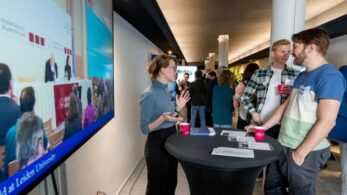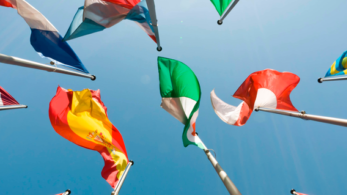Highlighted

Interdisciplinary research: brainstorming and bridge-building
Bring over a hundred driven researchers together in one room and the good ideas will start to flow: that was the thinking behind the internal networking meeting on interdisciplinary collaboration on Wednesday 17 May. Representatives from the nine interdisciplinary programmes were waiting at their stalls to answer questions and make new matches.

A quick call with Caroline de Ruijter about the Kiem grants for interdisciplinary collaboration
Be it in climate change, public health or artificial intelligence, when different disciplines join forces, science often flourishes. The new small-scale Kiem grants will enable Leiden researchers to explore or start collaborative projects with colleagues from other faculties. ‘So seek each other out and surprise us with your proposal’, says project leader Caroline de Ruijter.

10,000 euro interdisciplinary call: visit our event on 17 May
In the coming months, the university will make funds available to young Leiden researchers who want to start small-scale interdisciplinary initiatives. These so-called KIEM funds are earmarked for up to 22 projects of €10,000 each. During an interdisciplinary event on Wednesday 17 May, you can get the latest information about the call at a special ‘KIEM stand’.

Academics call for more powers for international organisations
Organisations like the UN and the EU should be given more powers to combat transboundary problems. This is the message of a report published by the Swedish SNS Democracy Council, whose authors include Prof. Jan Aart Scholte of Leiden University. The researchers also wrote the following article.
